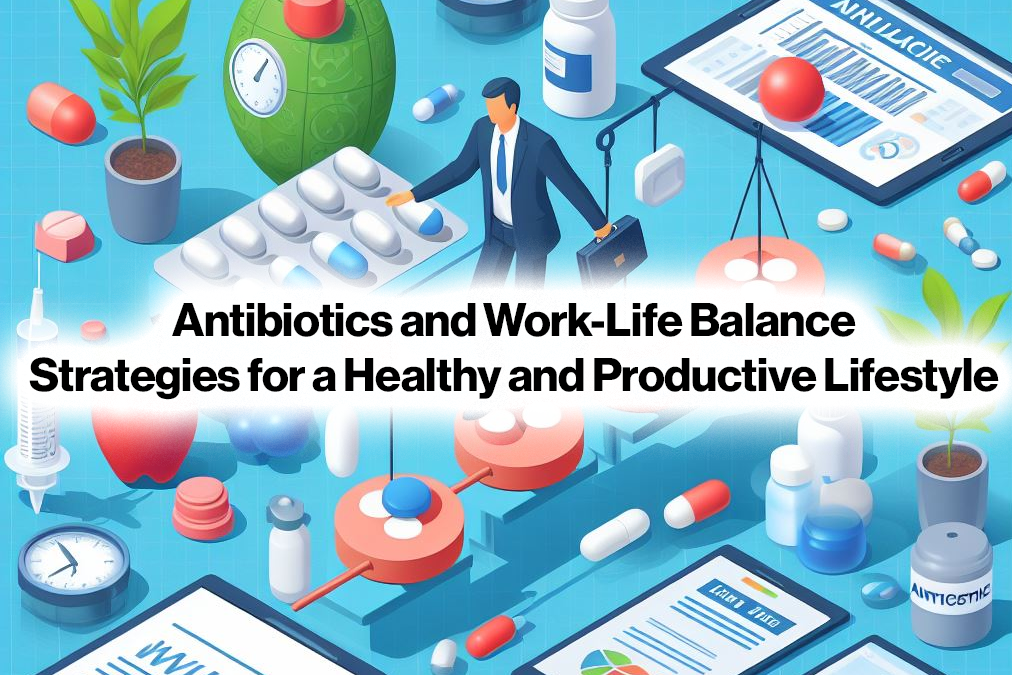In today’s fast-paced world, achieving a harmonious work-life balance can often feel like an elusive goal. The demands of a career, family responsibilities, and personal pursuits can leave individuals feeling overwhelmed and stressed. Moreover, with the increased reliance on technology and the constant connectivity it brings, maintaining a sense of balance between work and personal life has become more challenging than ever before. This article delves into the intricate relationship between antibiotics and work-life balance, providing valuable strategies to help individuals lead healthier and more productive lives.
Understanding the Impact of Antibiotics on Work-Life Balance
Antibiotics play a crucial role in modern medicine by combating bacterial infections and improving overall health. However, the misuse and overuse of antibiotics can lead to unforeseen consequences that impact an individual’s work-life balance. The side effects of antibiotics, such as fatigue, digestive issues, and weakened immune systems, can hinder an individual’s ability to perform optimally in both their professional and personal spheres. It’s essential to recognize how antibiotics can affect energy levels and overall well-being, which in turn influences work-life balance.
Strategies for Maintaining Work-Life Balance
1. Prioritize Self-Care
One of the most effective strategies for achieving a balanced lifestyle is by prioritizing self-care. This encompasses various aspects, including physical, mental, and emotional well-being. Engaging in regular exercise, practicing mindfulness, and cultivating hobbies can significantly contribute to reducing stress and improving overall vitality. By taking care of oneself, individuals can enhance their ability to manage work-related challenges while maintaining energy levels throughout the day.
2. Effective Time Management
Efficient time management is pivotal for maintaining a healthy work-life balance. Utilizing techniques such as the Pomodoro Technique, where work is divided into focused intervals followed by short breaks, can enhance productivity while preventing burnout. Prioritizing tasks, setting realistic goals, and avoiding multitasking are essential practices to ensure that work responsibilities don’t encroach upon personal time.
3. Establishing Boundaries
With the advent of remote work and digital communication, the line between work and personal life has become increasingly blurred. To counteract this, it’s imperative to establish clear boundaries. Set designated working hours, refrain from checking work emails during personal time, and communicate these boundaries to colleagues and supervisors. This approach fosters a sense of control over one’s time and reduces the likelihood of work-related stress spilling into personal life.
4. Promote Healthy Nutrition and Hydration
The relationship between antibiotics and gut health is well-documented. Since antibiotics can disrupt the balance of gut bacteria, it’s essential to prioritize healthy nutrition and hydration. Consuming a balanced diet rich in fiber, probiotics, and prebiotics can aid in maintaining gut health. Staying hydrated is equally vital, as dehydration can lead to fatigue and reduced cognitive function, affecting both work and personal activities.
5. Foster Supportive Relationships
Maintaining strong relationships with family, friends, and colleagues can significantly contribute to a well-rounded life. Social support provides an outlet for sharing experiences, seeking advice, and simply enjoying moments of relaxation. Engaging in meaningful conversations and spending quality time with loved ones can rejuvenate the mind and spirit, positively impacting work performance and personal satisfaction.
Embracing a Holistic Approach
In the pursuit of a balanced work-life dynamic, it’s crucial to adopt a holistic approach that considers the interplay between physical health, mental well-being, and personal fulfillment. Recognizing the potential impact of antibiotics on these aspects can empower individuals to make informed choices about their health and lifestyle. By implementing the strategies outlined in this article, individuals can enhance their work-life balance, improve overall quality of life, and cultivate a sense of fulfillment in both their professional and personal pursuits.

Leave a Reply